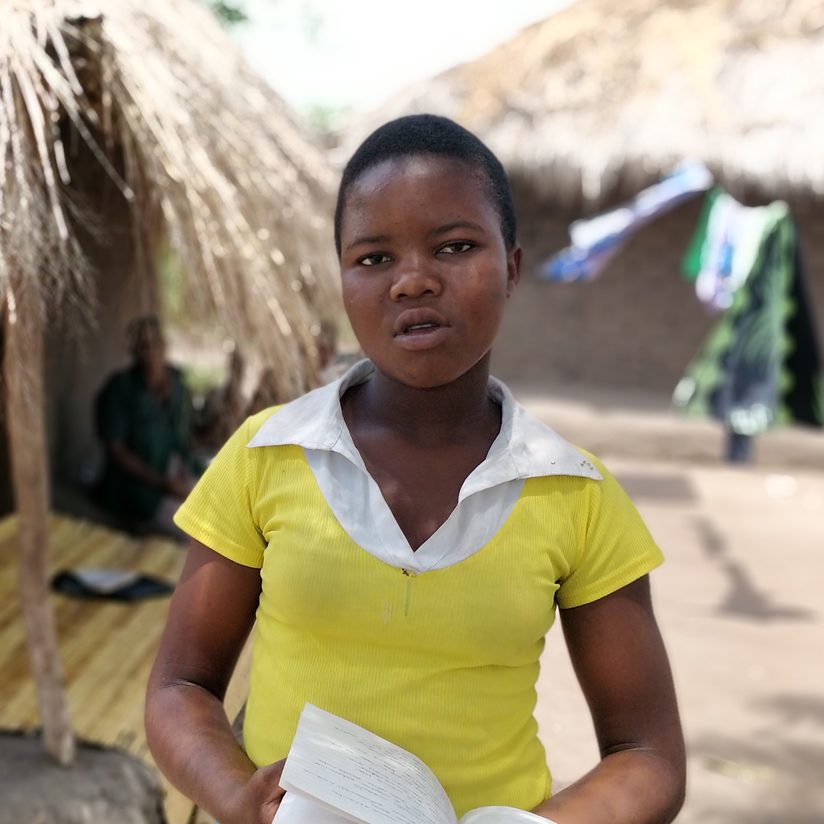
Afatsileni Mpakela, just 12 years old, could no longer attend school in her village in southern Malawi. The aunt she had lived with since she became an orphan in 2011 told her she could no longer afford the 50-cents-a-month school fees.
“She told me to focus on helping around the house,” Afatsileni recalls. “She asked me to go to local bars to ask men for money.” The young girl refused and was scolded by her aunt.
Then Afatsileni came home one day from doing chores. Her aunt was ecstatic. She showed Afatsileni 10 bars of soap and some new clothes. These were gifts from a businessman from Mozambique, a suitor for the pre-teen. Saddened that her aunt thought her future was just worth “a box of soap and some clothes” and afraid of her fate, Afatsileni fled to her grandmother’s village three miles away.
Afatsileni was sent to speak to members of a local community-based organization, one of 53 that the Johns Hopkins Center for Communication Programs’ One Community project works with in southern Malawi to prevent child marriages by changing social norms. They told Afatsileni’s aunt about the many ways that child marriage could negatively impact the girl and told her that if she continued to push for Afatsileni’s marriage, she would be reported to the chief, who could impose a hefty fine.
Because of that intervention, Afatsileni is living full time with her grandmother, Liney Rampwa, and has returned to school.
Receive the latest news and updates, tools, events and job postings in your inbox every month